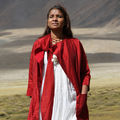Interviews
WTO extends term of preferential access to least developed countries
15 May '09
3 min read
The Council for Trade in Goods, on 12 May 2009, approved a ten-year extension to a WTO waiver allowing developing countries to provide preferential tariff treatment to products of least-developed countries (LDCs) without being required to extend the same tariff treatment to other WTO members. The decision now goes to the General Council for adoption.
Brazil, China, India and Korea proposed the extension of the waiver, which was set to expire on 30 June 2009.
India, speaking on behalf of the sponsors of the proposal, said that “over the last few years developing countries have been finding means within their own developmental imperatives to meet the requirements of the LDCs and grant them meaningful concessions, given the right environment and enabling provisions the developing countries can be encouraged to enhance their efforts.”
Tanzania said the LDC Group had been “very much inspired by the goodwill shown by the membership in approving the extension.”
The Council also approved one-year extensions, respectively, to waivers granted to Argentina and Panama in connection with the introduction of Harmonized System 1996 changes into WTO schedules of tariff concessions. These draft decisions have also been forwarded to the General Council.
On a related matter, the Council approved a decision on procedures leading to the verification and certification of Harmonized System 1996 changes the WTO Secretariat had undertaken to tariff schedules of 64 developing-country members. This decision also goes to the General Council for adoption.
The Council noted the recent notification of two free-trade agreements: between Costa Rica and Panama, and between China and New Zealand.
Turkey presented an updated version of its compilation of recent research of main trends after the phase-out of quantitative restrictions in the textiles sector. The paper proposed that the WTO take a coordinating role in overcoming economic difficulties encountered by developing countries in the post-quota period. Turkey suggested a detailed discussion of the paper at the next meeting.
Jordan, El Salvador, the Dominican Republic, Mauritius and Morocco expressed support for Turkey's paper. Korea said that any trade-related matter can be discussed by the Council.
China, Pakistan, India, Korea and Hong Kong, China expressed concern that the paper might be aimed at reversing trade liberalization, and stressed that it would never enjoy consensus in the Council.
The chair, Amb. Elin Ostebo Johansen (Norway), said that it was clear members were far from an agreement on this issue, with some wanting it to remain on the agenda and some others wanting to take it off the agenda. She urged interested delegations to meet among themselves to find a way forward. The Council agreed to revert to this item at the next meeting (29 June 2009), but that if the discussions remained inconclusive, this agenda item would be suspended.
Brazil, China, India and Korea proposed the extension of the waiver, which was set to expire on 30 June 2009.
India, speaking on behalf of the sponsors of the proposal, said that “over the last few years developing countries have been finding means within their own developmental imperatives to meet the requirements of the LDCs and grant them meaningful concessions, given the right environment and enabling provisions the developing countries can be encouraged to enhance their efforts.”
Tanzania said the LDC Group had been “very much inspired by the goodwill shown by the membership in approving the extension.”
The Council also approved one-year extensions, respectively, to waivers granted to Argentina and Panama in connection with the introduction of Harmonized System 1996 changes into WTO schedules of tariff concessions. These draft decisions have also been forwarded to the General Council.
On a related matter, the Council approved a decision on procedures leading to the verification and certification of Harmonized System 1996 changes the WTO Secretariat had undertaken to tariff schedules of 64 developing-country members. This decision also goes to the General Council for adoption.
The Council noted the recent notification of two free-trade agreements: between Costa Rica and Panama, and between China and New Zealand.
Turkey presented an updated version of its compilation of recent research of main trends after the phase-out of quantitative restrictions in the textiles sector. The paper proposed that the WTO take a coordinating role in overcoming economic difficulties encountered by developing countries in the post-quota period. Turkey suggested a detailed discussion of the paper at the next meeting.
Jordan, El Salvador, the Dominican Republic, Mauritius and Morocco expressed support for Turkey's paper. Korea said that any trade-related matter can be discussed by the Council.
China, Pakistan, India, Korea and Hong Kong, China expressed concern that the paper might be aimed at reversing trade liberalization, and stressed that it would never enjoy consensus in the Council.
The chair, Amb. Elin Ostebo Johansen (Norway), said that it was clear members were far from an agreement on this issue, with some wanting it to remain on the agenda and some others wanting to take it off the agenda. She urged interested delegations to meet among themselves to find a way forward. The Council agreed to revert to this item at the next meeting (29 June 2009), but that if the discussions remained inconclusive, this agenda item would be suspended.
World Trade Organisation
Popular News
Leave your Comments
Editor’s Pick
































-Ltd..jpg?tr=w-120,h-60,c-at_max,cm-pad_resize,bg-ffffff)





.jpg?tr=w-120,h-60,c-at_max,cm-pad_resize,bg-ffffff)
.jpg?tr=w-120,h-60,c-at_max,cm-pad_resize,bg-ffffff)






